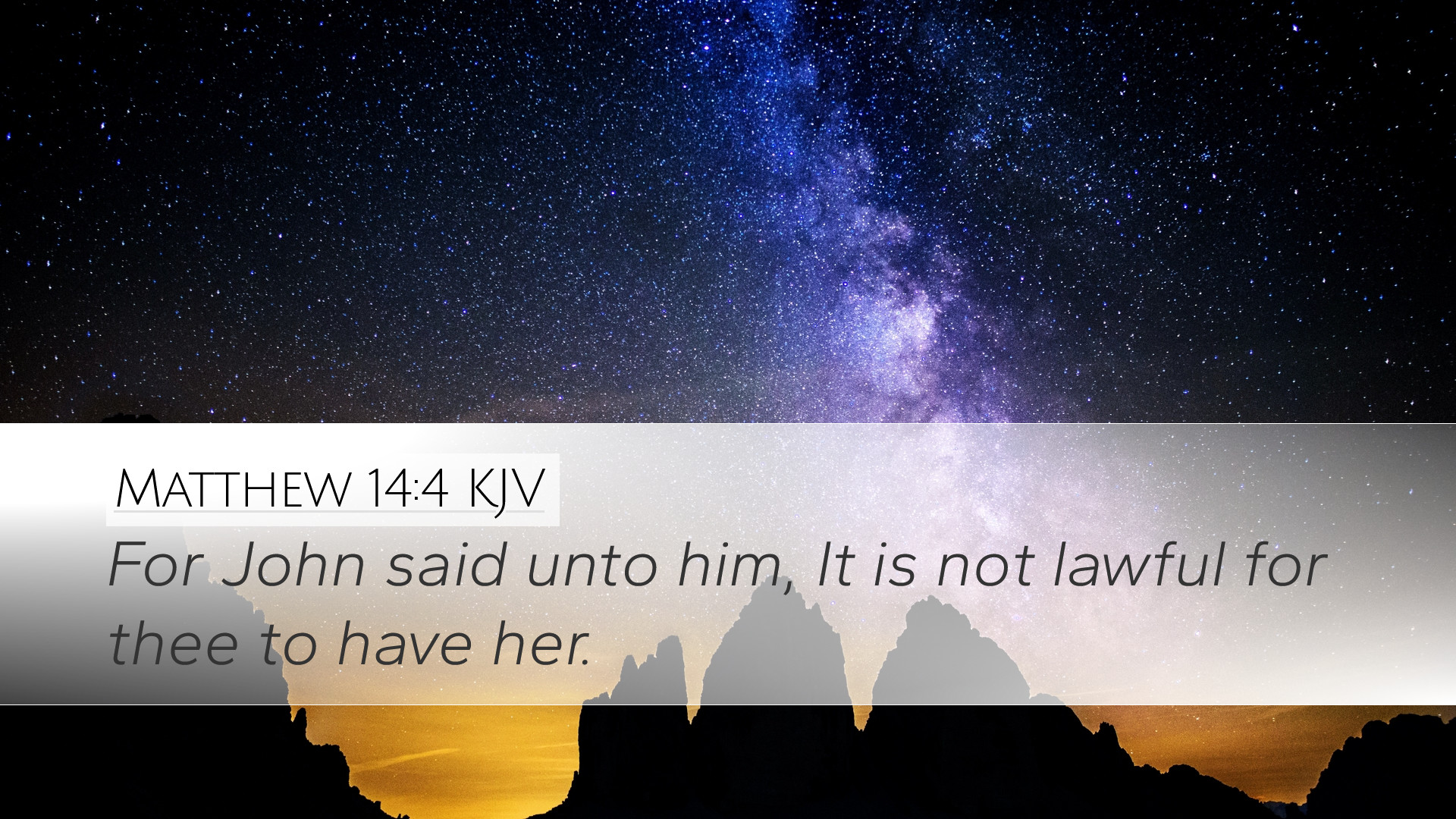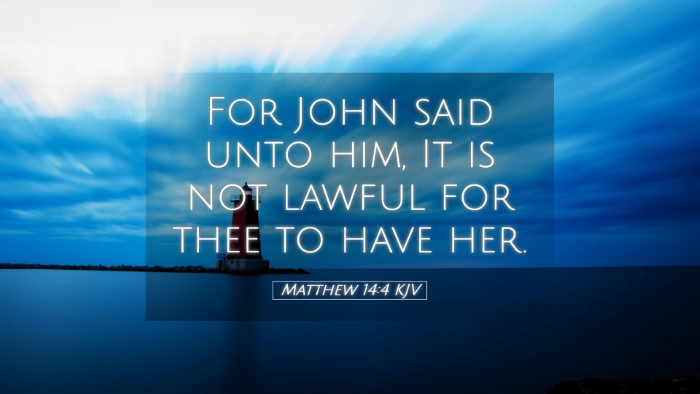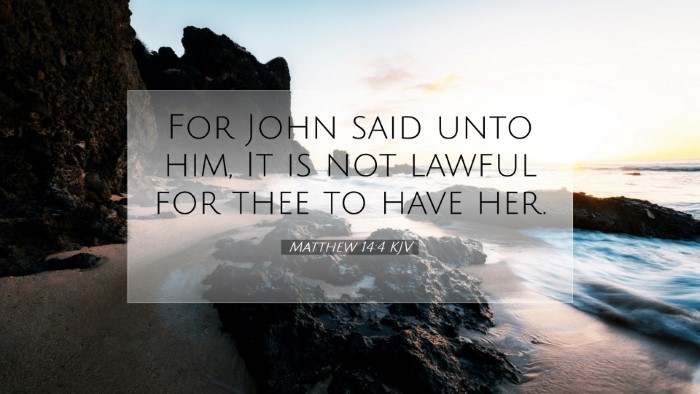Commentary on Matthew 14:4
Verse Context: Matthew 14:4 states, "For John said unto him, It is not lawful for thee to have her." This verse occurs in the narrative of the imprisonment and subsequent execution of John the Baptist, serving as a pivotal moment that reflects not only the moral stance of John but also sets the stage for Jesus’ ministry amid opposition.
Insights from Matthew Henry
Matthew Henry provides a thorough exposition regarding the moral implications of John the Baptist’s confrontation with Herod. He highlights several key points:
- John's Role as a Prophet: Henry notes that John the Baptist served as a moral compass, unafraid to speak truth to power. This is illustrated through his direct admonition to Herod regarding the unlawful nature of Herod's marriage to Herodias.
- Courage in Confrontation: The courage exhibited by John is commended. Henry emphasizes that true prophets are characterized by their willingness to confront sin, regardless of the consequences they may face.
- The Unlawfulness of Herod's Actions: The commentary elaborates on the implications of the phrase "It is not lawful." This highlights the moral and legal violation of Herod’s actions not just in the eyes of Jewish law but also in the broader moral framework laid out in Scripture.
Insights from Albert Barnes
Albert Barnes offers a detailed contextual analysis of Matthew 14:4 that emphasizes Herod's actions' legal and spiritual ramifications:
- Herod’s Indulgence and Consequences: Barnes notes that Herod, motivated by personal indulgence, disregarded the law. John’s rebuke serves as a direct challenge to Herod's authority and morality, which echoes throughout history regarding the consequences faced by leaders who stray from divine law.
- John's Imprisonment: The context of John the Baptist being imprisoned for his outspoken condemnation is significant. Barnes conveys that such imprisonment is a common fate for those who stand against societal norms and leadership misconduct.
- Application for Believers: Barnes emphasizes that believers are called to speak out against immorality and injustice. He encourages Christians to embody the spirit of John the Baptist, standing for truth even when facing severe repercussions.
Insights from Adam Clarke
Adam Clarke provides a comprehensive look at the implications of John’s statement and the larger narrative at play:
- Historical Context: Clarke brings attention to the historical background regarding Herod's marriage, detailing how public morality was often ignored by those in power. He suggests that understanding this context is critical for interpreting the severity of John’s confrontation.
- Spiritual Significance: Clarke emphasizes the spiritual dimension of John’s proclamation. He posits that John not only addressed Herod’s unlawful marriage but also called for repentance within the broader community, symbolizing the prophetic voice of God which is often unheeded.
- The Message to the Church: Clarke urges the church to recognize its responsibility in calling out immorality. He points out that the spirit of John the Baptist remains relevant, as the moral compass of society often comes under scrutiny in modern contexts.
Theological Considerations
This verse is a profound source for theological reflection and offers multiple layers of understanding that are crucial for pastors, theologians, and students of Scripture:
- Moral Integrity: The ethical position taken by John increases our understanding of what it means to live a life of moral integrity in opposition to prevailing cultural norms.
- Cost of Discipleship: The consequences faced by John the Baptist illustrate the cost of discipleship. It serves as a reminder that following God’s commandments may lead to conflict with the world.
- Prophetic Voice Today: The passage calls for the church to consider its own stance on societal issues, urging a prophetic voice that calls for repentance and righteousness in both personal and public spheres.
Conclusion
In light of the insights from these commentaries, Matthew 14:4 serves not only as a historical narrative but also as a timeless call to righteousness. The call of John the Baptist, as he stood resolutely against Herod, invites all believers to engage in the ongoing dialogue of faith, morality, and justice in a world frequently at odds with God's law.


